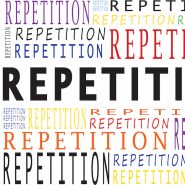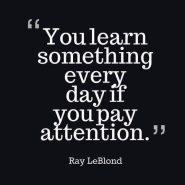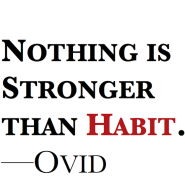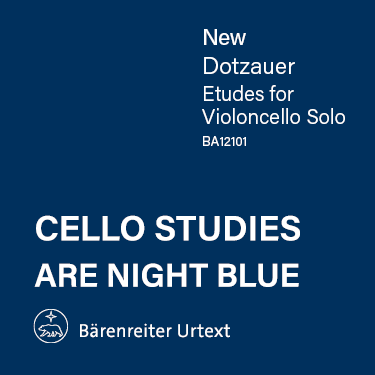Tag: Selma
By Selma Gokcen May 6, 2014
Subjects Playing Healthy
By Selma Gokcen March 10, 2014
Subjects Playing Healthy
Tags accuracy, activity, Alexander Technique, cello, cellobello, conditioning, conservatory, Coordination, delivery, F.M. Alexander, Gokcen, habit, hours of practicing, necessity, Practice Room, Primary Control, relentless repetitive motions, repetition, results, Selma, the Use of the Self, young instrumentalists
By Selma Gokcen January 20, 2014
Subjects Playing Healthy
Tags Alexander Technique, attention, available energy, creative, daily practice, deeper understand, effort, Einstein, flexible, free state of alertness, full attention, Gokcen, impressions, listening intently, living in question, Mind, motivation, partial attention, Patrick Macdonald, paying attention, refined skills, refining skills, releasing excessive tension, Selma, sensations, Theory of Everything, unanswerable questions, wasted energy
By Selma Gokcen November 26, 2013
Subjects Playing Healthy
Tags accuracy, act, Alexander Technique, attention, Awareness, back, blog, cello, cello playing, cellobello, detect your intention, discovery, distress, effect, effect on cello playing, effortless quality, experiment, familiar, fingers, Gokcen, Habits, head to toe, holding, motion, neck, neuromuscular system, our surroundings, overdoing, pack up our habits, position of rest, Preparation, response, response to life, Selma, sitting, solution, standing, successful functioning in daily activities, support, tension, the preparation phase of movement, well-practiced
By Selma Gokcen October 17, 2013
Subjects Playing Healthy
Tags acrobatics, Alexander Technique, ankle, arms, cello, cello playing, cellobello, elbow, firm, foot, freedom of movement, Glenohumeral Joint, Gokcen, heavy lifting, hip, hunched shoulders, joints, knee, legs, Lumbar spine, mobility, muscles, pelvic structures, principles of stability and mobility, relationships, Scapula, Selma, shifting, shoulder girdle, Spine, stability, stable back, strong, Thoracic Spine, weight
By Selma Gokcen June 16, 2013
Subjects Playing Healthy
Tags about thumbs, advances, Arizona State University, brain, brain space, cello, cellobello, Changes in the ligament, Chimps and monkeys, closed fist position, conform the thumb, dexterity, discussion, Gokcen, grasp, highest levels, index finger, language, manipulate tools, Mary Marzke, middle finger, modern humans, modified design, neck of the cello, opening and closing the hand, palm, physical anthropologist, playing a musical instrument, potential, primates, professor, Selma, skill, talent, Thumbs, variation
By Selma Gokcen April 18, 2013
Subjects Playing Healthy
Tags abdominal muscles, affect, Alexander principle, Alexander Technique, attention, automatic process, breathing, breathing apparatus, breathing free, cello, cello pressing on chest, cellobello, chest cavity, conditions, correct position, divine influence, downward force of gravity, drink, efficient breathing, energy, enlivening, enter and depart life, exalting emotion, exercise, exhale, existing tension, expiration, food, freedom, freedom of the thorax and ribs, gases, Gokcen, gravity, guide, health, inspire, lungs, muscles, muscles relax, re-education, reducing air pressure, Selma, sequence, shift weight, straining for breath, touch, use affects function
By Selma Gokcen March 11, 2013
Subjects Playing Healthy
Tags aiming for a goal, Alexander Technique, automatic, balancing the instrument, bow, breath flowing, cello, cello technique, cellobello, conceptions, evaluate, Experience, exploring our habits, framework for self-study, freedom, fundamental knowledge, Gokcen, inner composer, lasting value of Alexander Technique, left hand, movement, muscular tension, music, musical expression, nervous system, phrasing, physical pleasure of playing, place of silence, Preconceived ideas, pressure in the sound, psycho-physical, re-training of musicians, reactions, refining sensation and awareness, self-study, Selma, Six Part Series, subconscious patterns of learning, tension, thinking, Thinking in a new way, working with music
By Selma Gokcen March 4, 2013
Subjects Playing Healthy
By Selma Gokcen February 25, 2013
Subjects Playing Healthy
Tags Alexander Technique, arms, beauty, bend and extend, body at ease, bow strokes, Casals, cello, cello playing muscles, cellobello, challenges, collapse, contraction, dynamics, energy, fingers, flexible, function, Gokcen, Habits, importance of quietness, increased resistance, inner pitch, misguided effort and unease, nasal sound, neck, partnership, perspective, powerful accents, powerful arms, pressured sound, principle of opposition, process, pull and push, repeated sensory stimulation, Selma, sensitive gesture, sensory awareness, simple gesture, Six Part Series, teaching table, thinking in new ways, unwanted sound, volume, wrist
By Selma Gokcen February 18, 2013
Subjects Playing Healthy
Tags Alexander Technique, associations, balance, bowing, calm breathing, cello, cellobello, contraction, engage in conversation, exploration, Gokcen, Habits, head-neck-back relationship, ischial tuberosities, natural, natural movement, negative associations, one-sided instrument, opposition, pelvic rocker bones, positive associations, posture, power, practicing, quiet practice, receive the cello, relationships, rotation of the spine, Selma, shifting weight, simple activities, sitting, Six Part Series, Spine, tension, tension in shoulders and back, thinking in new ways, torso, understanding, value
By Selma Gokcen February 11, 2013
Subjects Playing Healthy
Tags ability, Alexander Technique, attention to detail, bow arm, cellists, cello, cellobello, creating balance, cultivate awareness, energy flowing through the body, Gokcen, Habits, instrumentalists, Listening, music, musicians, opposition, Part II, powerful force of energy, proper weight transfer, quietness, relationship of the head back and spine, Selma, sharpening the senses, Six Part Series, tension in the neck, the back, Thinking in a new way, top level performing, trying, well-coordinated body, willing
By Selma Gokcen February 3, 2013
Subjects Playing Healthy
Tags Alexander Technique, animate, arms, attention, automatic movement, back, behave, brain, cello, cellobello, collapse, doing, exploration, feet, fingers, force, Gokcen, Habits, hands, laying on the floor, learning, legs, manifest, mental messages, music, music-making, nature, neck, Observation, overcome deeply ingrained habits, Pablo Casals, Patrick Macdonald, perceive, powerful expressiveness, pressure, primary information, process, pushing, re-education, react, rediscovering, Selma, shortcuts, shoulders, strain, stretching, the value of quietness, thinking
By Selma Gokcen November 5, 2012
Subjects Playing Healthy, Practicing
By Selma Gokcen October 2, 2012
Subjects Playing Healthy, Practicing















